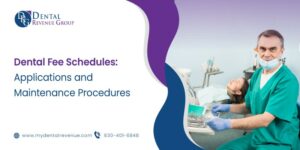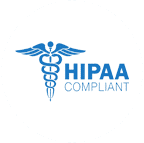The foundation of a successful dental billing process lies in the dental practice’s ability to verify insurance benefits before providing services. Dental insurance verification serves as the linchpin that reduces claim denials, elevates practice collections, and ultimately saves both time and money for patients. However, dental practices often face challenges when it comes to managing claims and denials, which can have a significant impact on their cash flow. In this blog post, we’ll explore the importance of dental insurance verification in reducing claims denials and improving the financial health of dental practices.
The Crucial Role of Dental Insurance Verification
In the realm of dental practice management, dental insurance verification plays a vital role in ensuring that both patients and providers are well-informed about the specifics of their insurance benefits. This process involves gathering essential information about a patient’s dental insurance plan to determine which treatments and services are covered. Startlingly, surveys reveal that approximately 75 percent of dental insurance claims denials can be attributed to inadequate or the complete absence of insurance verification.
Claims denials are one of the most significant obstacles that dental practices encounter in their revenue cycle management. A claim denial occurs when an insurance company refuses to pay for a dental service, leaving the patient or the practice responsible for the cost. These denials can result from various issues, such as incorrect patient information, lack of pre-authorization, coding errors, and exceeding annual benefit limits.
The consequences of frequent claims denials are detrimental to dental practices:
- Denials can lead to delayed or reduced payments for services rendered, affecting the cash flow of the practice.
- When patients are unexpectedly billed for services, it can lead to dissatisfaction and potential loss of patients.
- Dental staff spend valuable time addressing denials, which could be better utilized in providing patient care.
Dental practices can turn to dental insurance verification to overcome these challenges and reduce claims denials. Here’s how dental insurance verification can benefit your practice:
Accurate Patient Information: Verifying insurance information ensures that all patient details are up to date, reducing the risk of claim denials due to incorrect information.
Understanding Benefits: Dental practices can recommend appropriate treatments and reduce the chances of providing non-covered services by knowing the patient’s insurance coverage and limitations.
Pre-Authorization: Verifying insurance beforehand prevents unnecessary delays and denials. This also enables practices to discuss treatment options with patients based on their coverage.
Timely Claims Submission: With insurance information verified, claims can be submitted promptly, reducing the likelihood of denials due to late filings.
Billing Transparency: Informed patients are more likely to understand their financial responsibilities, reducing disputes and patient dissatisfaction.
Efficiency: Dental insurance verification streamlines the billing and claims process, saving valuable time and resources for the practice.
Implementing Dental Insurance Verification in Your Practice
Now that we understand the benefits of dental insurance verification let’s discuss how to implement it effectively in your dental practice:
Training Staff: Ensure staff members are trained in dental insurance verification processes. They should be proficient in using dental software and have access to up-to-date resources to verify insurance information.
Collecting Patient Information: Establish a standardized process for collecting patient insurance information. This can be done during the appointment scheduling phase or on the patient’s first visit.
Verification Checklist: Create a verification checklist that includes all the essential information to be verified, such as patient demographics, insurance policy details, and pre-authorization requirements.
Integration with Practice Management Software: Utilize practice management software that integrates with insurance verification tools. These tools can automate and streamline the verification process.
Routine Verification: Make insurance verification a routine part of your appointment scheduling process. Regularly update patient information and benefits, especially for long-term patients.
Patient Communication: Communicate with patients regarding their insurance coverage and financial responsibilities. Ensure they understand the details of their plan and any pre-authorization requirements.
Documentation: Maintain accurate records of insurance verification for each patient. This documentation can be crucial in case of disputes or claim denials.
Understanding the Essentials of Dental Insurance Verification
The dental insurance verification process is a critical and meticulous undertaking aimed at preventing fraud, reducing errors, averting claim denials, and fostering positive customer relationships. This multifaceted process involves the following key steps:
Patient Interaction and Data Collection
Commence the process by engaging patients to gather information about their historical treatments and existing benefit plans. This initial patient data forms the cornerstone of the verification process.
Direct Communication with Insurance Providers
To confirm coverage plans and benefits accurately, establish direct communication with the patient’s insurance company. This can be achieved through direct phone calls or the insurance company’s online portal. This step is fundamental to ensuring the patient’s insurance aligns with their required treatments.
Mastery of Dental Codes and Billing
A sound knowledge of dental codes and billing procedures is essential. It is imperative to stay up to date with any policy changes that may impact the verification process, ensuring accuracy in this critical step.
Consistent Follow-ups and Thorough Documentation
Regular follow-ups and comprehensive documentation are crucial in the dental insurance verification process. This is because the records maintained by insurance companies may not always accurately reflect a patient’s benefit utilization. Proper documentation, including potential screenshots from online portal interactions, serves as substantial evidence in case of disputes or discrepancies.
Considering Outsourcing for Enhanced Efficiency
Given the extensive and intricate nature of dental insurance verification, which must be routinely carried out for all patients, many dental practices outsource this service to experienced experts. Outsourcing can significantly improve efficiency and accuracy, allowing the dental practice to focus on core patient care and other administrative responsibilities while ensuring that insurance verification remains precise and effective.
The Five Key Benefits of Dental Insurance Verification Services
Dental insurance verification services play a vital role in optimizing the operations of a dental practice. Let’s delve into the five significant advantages of employing dental insurance verification services:
Enhanced Patient Experience
A crucial goal for any dental practice is not only to succeed as a business but also to offer exceptional patient care that fosters loyalty and return visits. Accurate insurance verification in advance minimizes patient wait times, eliminating delays often caused by last-minute verifications. Verifying insurance information in advance reduces errors and confusion, ensuring patients receive clear and precise information about their coverage. Advance verification results in more accurate cost estimates, engendering trust and loyalty. Satisfied patients are more likely to return for treatment and recommend your practice to others.
Increased Efficiency
Administrative teams in dental practices juggle multiple responsibilities daily, and verifying insurance eligibility consumes a significant portion of their time. Outsourcing insurance verification services can reduce this burden, allowing in-house teams to allocate their time to essential tasks such as patient scheduling, check-in/check-out, treatment plan presentations, and answering calls. This leads to increased efficiency and productivity within the practice, with enhanced accuracy facilitated by modern dental insurance verification software.
Reduced Financial Risk
Dental practices heavily rely on insurance reimbursements for profitability. However, claim denials or underpayments can pose substantial financial risks. Dedicated experts verify patient insurance information, leading to fewer mistakes that could result in costly claim denials. The cleaner claims facilitated by insurance verification services ensure faster reimbursement, ultimately enhancing the practice’s financial stability.
Increased Financial Transparency
Transparency in financial matters is paramount in healthcare, and dental practices are no exception. Patients are better informed about their insurance coverage, estimated out-of-pocket expenses, and treatment expectations. Patients gain a clearer understanding of their insurance coverage, which is often complex and confusing. Dental insurance verification services provide timely updates on patient insurance policies, ensuring that both your in-house team and patients are aware of changes in coverage.
Competitive Advantages
Consistently adequate insurance verification gives your private dental practice or group a competitive edge. Dental groups strive to distinguish themselves and attract both patients and providers. Outsourcing insurance verification services allows you to offer superior patient care, fostering financial health and an exceptional patient experience that generates positive word-of-mouth recommendations.











